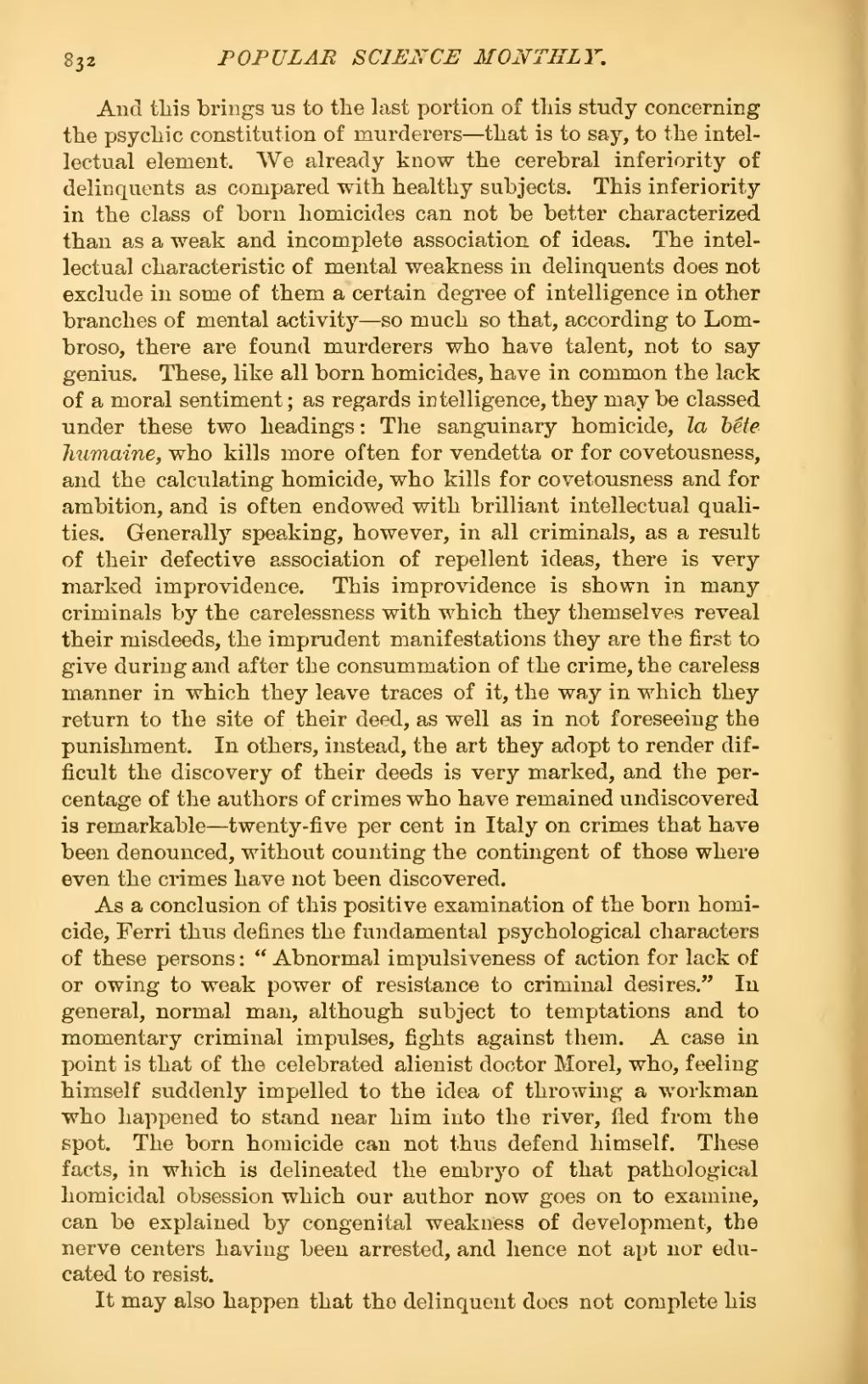And this brings us to the last portion of this study concerning the psychic constitution of murderers—that is to say, to the intellectual element. We already know the cerebral inferiority of delinquents as compared with healthy subjects. This inferiority in the class of born homicides can not be better characterized than as a weak and incomplete association of ideas. The intellectual characteristic of mental weakness in delinquents does not exclude in some of them a certain degree of intelligence in other branches of mental activity—so much so that, according to Lombroso, there are found murderers who have talent, not to say genius. These, like all born homicides, have in common the lack of a moral sentiment; as regards intelligence, they may be classed under these two headings: The sanguinary homicide, la bête humaine, who kills more often for vendetta or for covetousness, and the calculating homicide, who kills for covetousness and for ambition, and is often endowed with brilliant intellectual qualities. Generally speaking, however, in all criminals, as a result of their defective association of repellent ideas, there is very marked improvidence. This improvidence is shown in many criminals by the carelessness with which they themselves reveal their misdeeds, the imprudent manifestations they are the first to give during and after the consummation of the crime, the careless manner in which they leave traces of it, the way in which they return to the site of their deed, as well as in not foreseeing the punishment. In others, instead, the art they adopt to render difficult the discovery of their deeds is very marked, and the percentage of the authors of crimes who have remained undiscovered is remarkable—twenty-five per cent in Italy on crimes that have been denounced, without counting the contingent of those where even the crimes have not been discovered.
As a conclusion of this positive examination of the born homicide, Ferri thus defines the fundamental psychological characters of these persons: "Abnormal impulsiveness of action for lack of or owing to weak power of resistance to criminal desires." In general, normal man, although subject to temptations and to momentary criminal impulses, fights against them. A case in point is that of the celebrated alienist doctor Morel, who, feeling himself suddenly impelled to the idea of throwing a workman who happened to stand near him into the river, fled from the spot. The born homicide can not thus defend himself. These facts, in which is delineated the embryo of that pathological homicidal obsession which our author now goes on to examine, can be explained by congenital weakness of development, the nerve centers having been arrested, and hence not apt nor educated to resist.
It may also happen that the delinquent does not complete his

